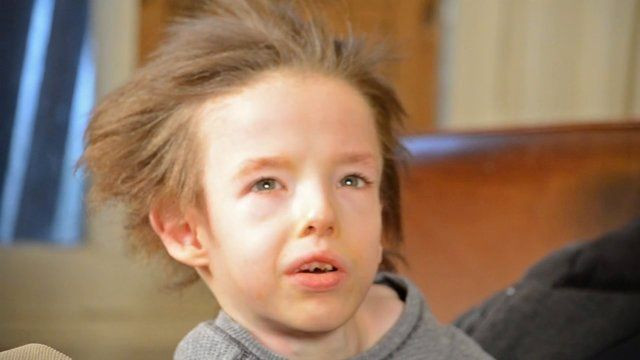Menkes Disease Is A Fatal Genetic Disorder: Short Documentary Offers Families Help And Hope

Daniel DeFabio puts a hopeful spin on the otherwise devastating Menkes disease (MD) in the 10-minute documentary, "Menkes Disease: Finding Help & Hope."
MD (also known as Kinky Hair Syndrome) is a rare, fatal genetic disorder most often seen in newborn boys. The disorder prevents the body from absorbing copper, and as a result, children’s hair, brain, and muscles develop improperly. Worse than that is if doctors don’t catch the disorder within 10 days of life — coarse, kinky hair is one of the only early indicators — infants aren’t expected to live more than 10 years.
The only available treatment is a clinical trial at the National Institutes of Health (NIH), in which children receive daily injections to help their body metabolize copper. The idea is if copper can reach the blood stream (up to 15 percent is enough) and normalize levels despite the mutation, it can improve children’s prognosis.
The DeFabios enrolled Lucas in the trial, initially thinking his prognosis meant they could never be happy again. But “after a tough period of adjusting their expectations,” Lucas brought his parents more joy than pain — and Daniel wanted other families dealing with MD to know this was possible for them, too.
“The video will tell someone yes, it’s horrible, but somehow a lot of us have gone on to enjoy life with our boys,” he told Medical Daily. “It’s a different life, but it doesn’t shut you down. Someone once told me it changes the journey, and I think that’s a good way to describe it.”
Instead of "the cut and dry realities" of Google Search, DeFabio’s documentary allows parents to learn about MD in a more hopeful context. It also adds to the social media networks families already access for answers and comfort, such as The Menkes Foundation Facebook group.
“Facebook wasn’t quite as popular when Lucas was diagnosed; it was a Yahoo! email news group that all migrated to Facebook,” DeFabio said. “It really is the ultimate resource. Other than a genetics specialist, people with first-hand experience are the most helpful.”
However, even with the support of other families, every mutation is unique: Two-thirds of cases are inherited from the child’s mother’s side, while one-third are spontaneously developed. Symptoms are not universal, and by learning to ask the right questions, DeFabio said we can help the heartbreaking amount of children diagnosed too late.



























